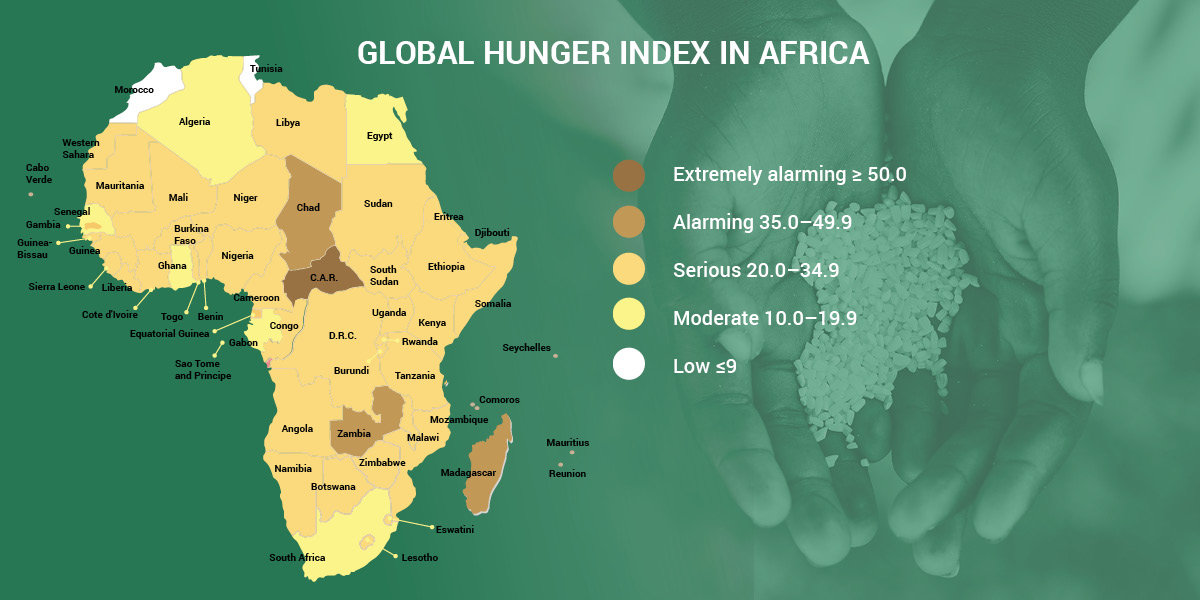At this stage, measures to contain the COVID-19 pandemic in Africa are causing an economic crisis that is far more significant than the public health emergency it is trying to prevent. Whilst only approximately 20,000 people out of a population of about 1.2 billion people have tested positive for the virus in Africa thus far (the real numbers will be much higher), millions of people’s daily livelihood patterns and their everyday means of sustaining themselves and their families have been disrupted by the social distancing measures governments across Africa have adopted to contain the spread of the virus.
With a large proportion of people self-employed in the informal economy and in small and medium-size enterprises, the social distancing and self-isolation measures introduced in many African countries are thus having an immediate negative economic impact on livelihoods. The degree to which there is adequate availability and fair access to basic necessities, including basic food items, medical services and supplies, information, communication and other basic necessities during the implementation of COVID-19 related measures, will influence the extent to which many countries on the continent are able to mitigate against possible social unrest and violence.
C19ConflictMonitor: Real or perceived shortages or preferential treatment of certain identity groups could result in social unrest, looting and attacks on individuals and groups.
Tweet
The formal economy is also severely affected by border closures, travel restrictions, loss of productivity, the collapse of the tourism industry, an overall reduction in economic activity and the disruption of global supply chains. The African Union published a report in April 2020 warning that key sectors of the African economy such as tourism, air transport, and the oil sector are already experiencing slowdown as a result of the COVID-19 pandemic. In 2019, the African Development Bank (AfDB) gave a forecast of 3.4% growth in African economies. However, the negative impact of COVID-19 on the economy, coupled with failing commodity prices, and declining government resources to finance public investment, makes it near impossible to achieve this growth rate in 2020. As a result, economic forecasts in most African countries are already being downgraded by at least 2-3 percentage points for 2020.
African Finance Ministers met virtually in mid-March to coordinate their response to the COVID-19 pandemic. Amongst others, they have called for a debt interest payments waiver to increase liquidity, so that African countries can be in a better position to increase health spending and stimulate their economies. And at the end of March and again in early April South African President Cyril Ramaphosa, as chair of the AU, convened a meeting of the AU Bureau – which includes the chair of the AU Commission and the outgoing (Egypt) and incoming (DRC) chairs of the AU – to develop a common African response to the virus. The AU Burea called on creditor countries and multilateral institutions to immediately suspend interest payments for Africa on its external public and private debt.
In response, the G20 Finance Ministers as well as the World Bank and the IMF announced on 15 April that they have agreed on a coordinated approach for a suspension of debt service payments – both principal repayments and interest payments – for the world’s poorest countries starting on May 1 until the end of the year.
Many other initiatives are underway to assist those most directly affected. For example, in Kenya’s informal settlements the Kenya Red Cross Society and others are providing targeted assistance through direct cash transfers, food parcels and other essential commodities.
Paul Nantulya argues that it is important that governments and others now engage local communities and together with them adapt their containment strategies to their specific needs and contexts. Lessons learned from the Ebola response in West Africa in 2014 and more recently in the DRC, show that communities need to be part of the solution. Government actions that are perceived as heavy-handed undermine public trust and resistance. Real or perceived shortages or preferential treatment of certain identity groups could result in social unrest, looting and attacks on individuals and groups.
Government across Africa should be commended for the assertive early actions they took to contain the pandemic. These measures have saved thousands of lives. However, African governments, in close consultation with community representatives and the private sector now need to urgently adapt these measures, and find a better balance between containing the spread of the virus and the socio-economic impact of the measures taken to control it.

